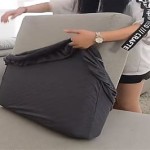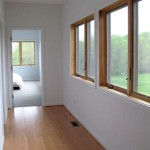Essential Aspects of Interior Sliding Door Locks
Sliding doors are a stylish and space-saving option for interior spaces. However, they also require proper locking mechanisms to ensure privacy, security, and safety. Choosing the right interior sliding door lock depends on factors such as the door design, installation requirements, and desired level of security.
Types of Interior Sliding Door Locks
There are various types of interior sliding door locks available:
- Flush Pull Locks: Mounted flush with the door, these locks engage with a strike plate on the frame when pulled.
- Mortise Locks: Recessed into the door, these locks provide a more concealed appearance and increased security.
- Rim Locks: Attached to the surface of the door, these locks are easy to install but less secure.
- Keyed Locks: Provide additional security by requiring a key to unlock.
- Keyless Locks: Can be opened using a code, fingerprint, or other non-key method, offering convenience and flexibility.
Installation Considerations
Before purchasing a lock, consider the following installation factors:
- Door Thickness: Ensure the lock is compatible with the thickness of your door.
- Backset: The distance between the edge of the door and the center of the lock's mechanism should correspond with the strike plate.
- Mounting Type: Determine if the lock requires mortising, surface mounting, or flush mounting.
- Handedness: Choose a lock designed for left-handed or right-handed sliding doors.
- Durability: Opt for locks made from durable materials, such as stainless steel or brass, to withstand wear and tear.
Safety Features
Some interior sliding door locks incorporate safety features such as:
- Anti-Lift Tabs: Prevent the door from being lifted off its track.
- Deadbolts: Provide an additional layer of security against forced entry.
- Childproof Locks: Keep children from accessing the door from the inside.
- Panic Hardware: Allows for a quick and easy exit in case of an emergency.
Choosing the Right Lock
To choose the best interior sliding door lock, consider the following:
- Security Needs: Assess the level of security required for your space.
- Convenience: Choose a lock that meets your lifestyle and preferences (e.g., keyed or keyless).
- Budget: Determine a budget for the lock and installation.
- Installation Capabilities: Consider your DIY skills or consult a professional for installation.
- Aesthetics: Select a lock that complements the style and décor of your interior space.
Conclusion
Interior sliding door locks play a crucial role in maintaining privacy, security, and safety within your home. By considering the types, installation requirements, safety features, and your specific needs, you can choose the best lock that meets your functional and aesthetic requirements.

How To Lock Barn Door A Sliding Rustica

Interior Room Veneered Wooden Sliding Door Track Lock China Made In Com

Naierdi Mute Sliding Door Lock Hidde Handle Interior Pull Locks Modern Anti Thef Home Joom

90 Degree Lighted Interior Sliding Door Latch Lock Toggle Hook Buckle Bolt Anti Theft Hasp For Window Fruugo No

The Teardrop Sliding Door Latch Lock Interior Barn Doors Locks
Ccjh Sliding Door Lock Invisible Recessed Handle Latch With Keys For Pocket

Sliding Door Lock Indoor Embedded Handle Translation Com

1pc Door Bolt Stainless Steel Latch Sliding Lock Surface Mounted Suitable Types Interior Doors Tools Home Improvement Temu Austria

Interior Barn Door Lock A Simple Way To Add Privacy National Hardware

French Brass Pocket Door Lock Large 4 1 2 Bathroom Privacy Hardware For Interior Sliding Doors








